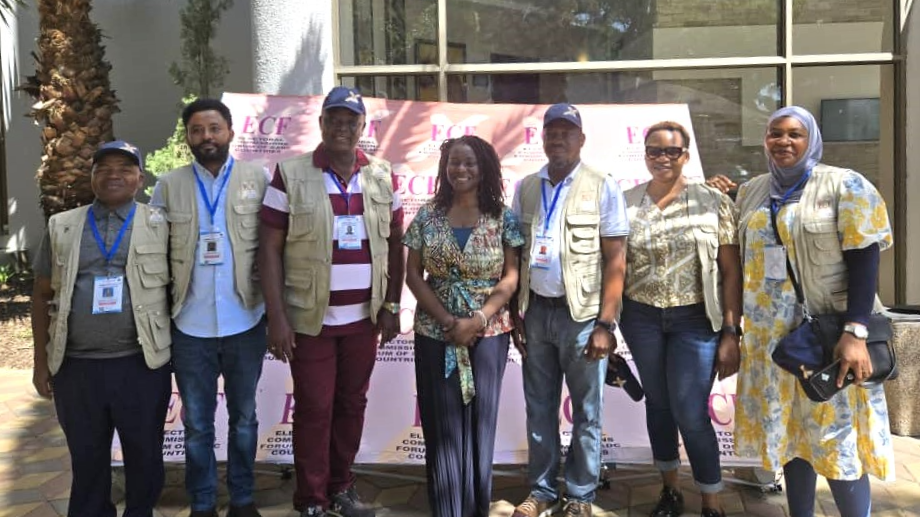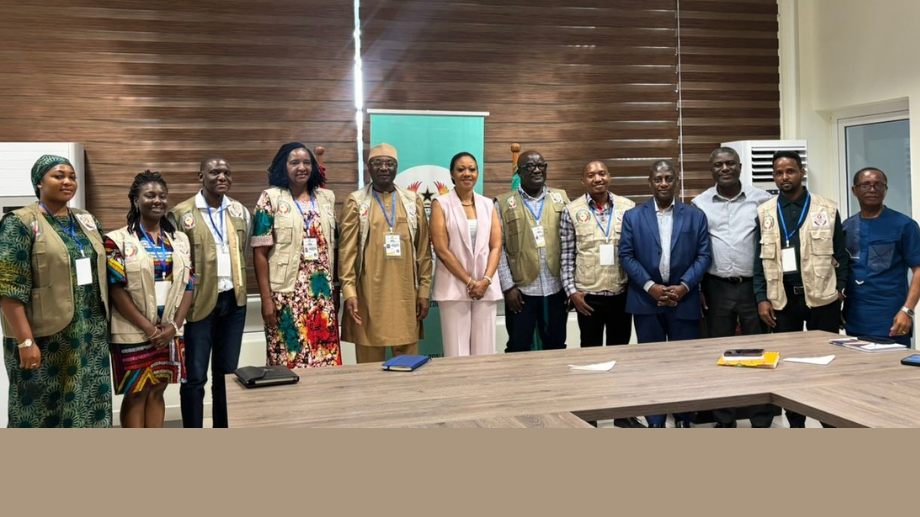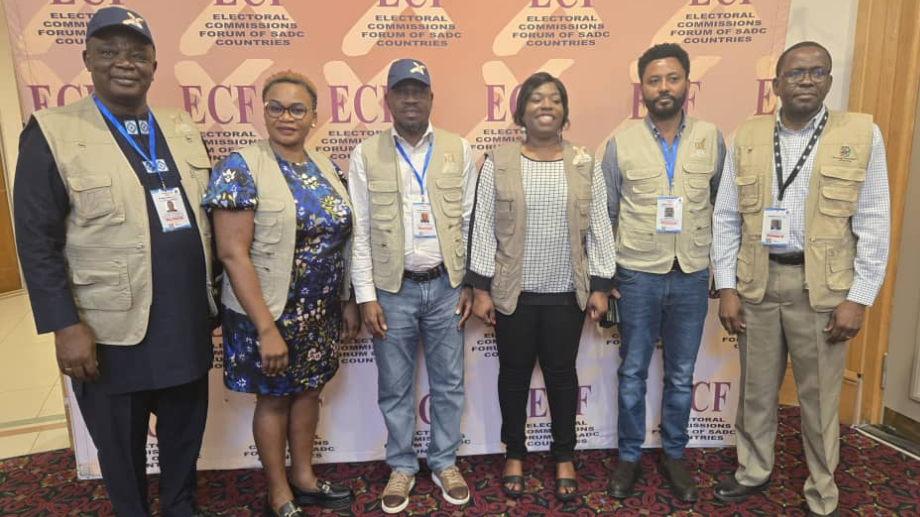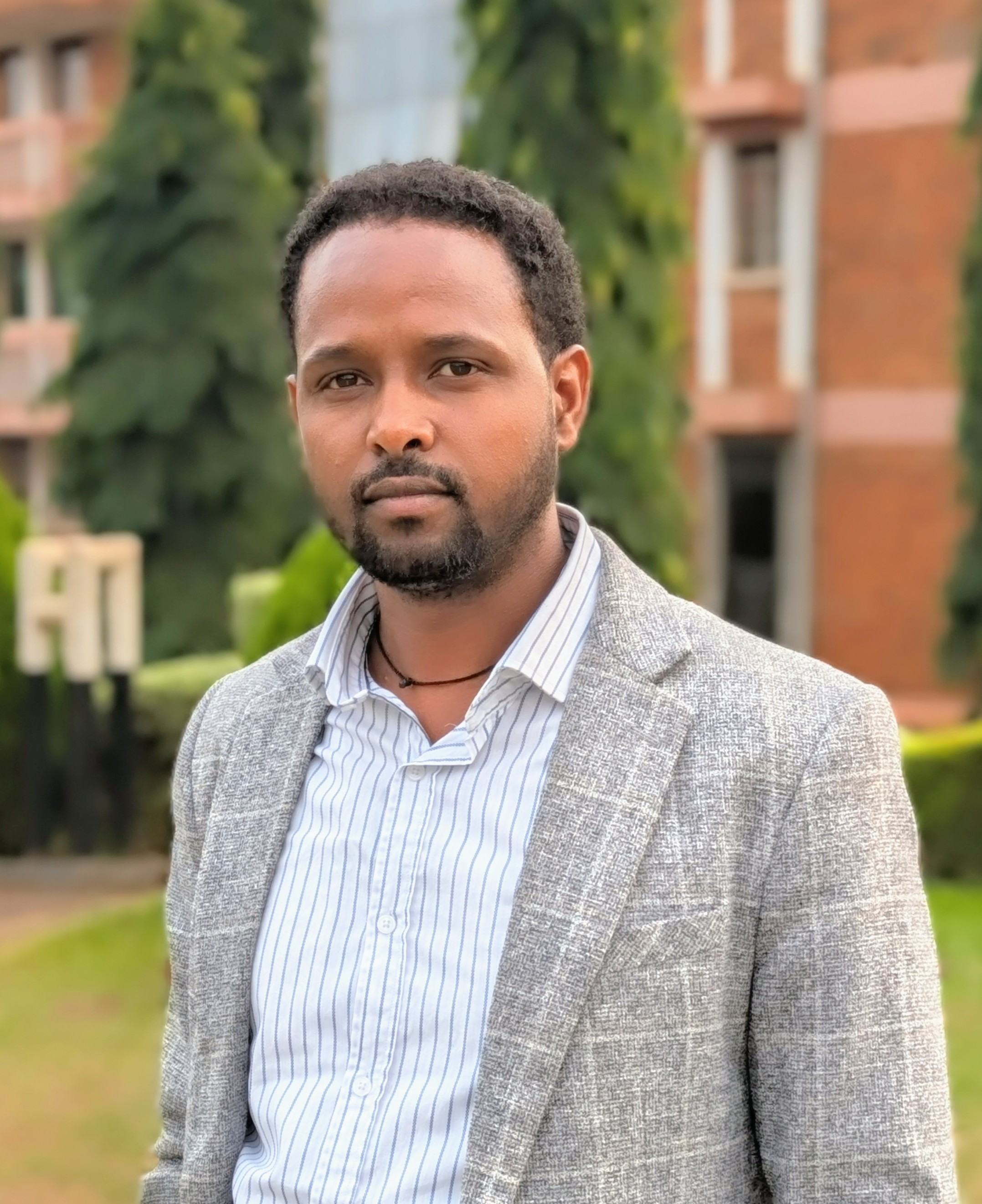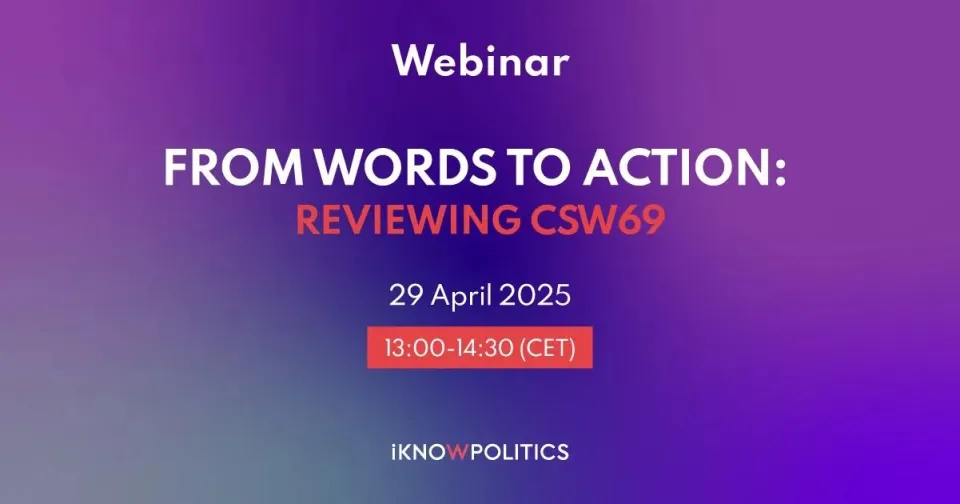Strengthening EMBs’ capacity through peer learning
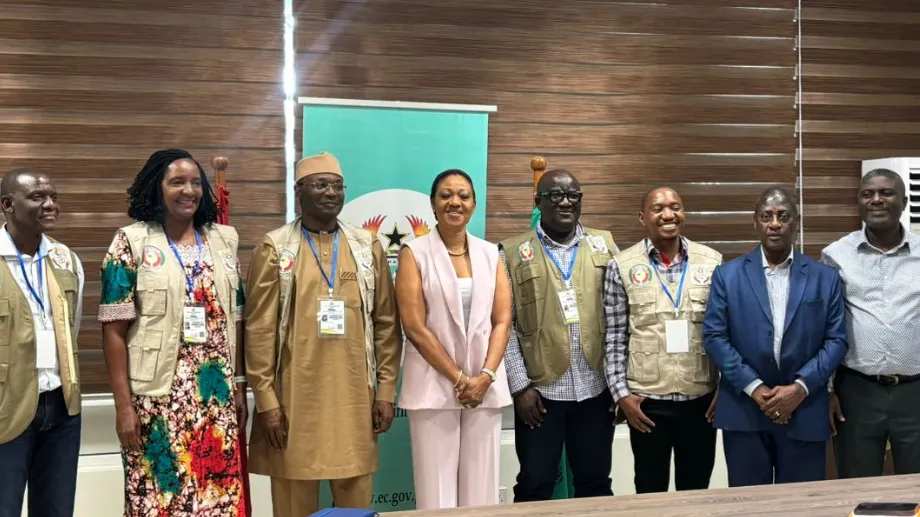
Through the EU-funded Strengthening pan-African capacities for electoral observation and assistance (SPEC) project, International IDEA's Africa and West Asia regional Electoral Process Team partnered with the Electoral Commissions Forum of SADC Countries (ECF-SADC) and the ECOWAS Network of Electoral Commissions (ECONEC), to facilitate peer support and solidarity missions that saw electoral commissioners from west and southern Africa, joining missions deployed by both regional networks.
International IDEA considers peer learning as a critical element of experiential learning for EMBs, especially at policy-level where Commissioners can exchange their experience and to disseminate good practices through such interactions.
IDEA’s Support to the ECF-SADC and ECONEC in the 2024 Namibian Historic Election
On November 27, 2024, Namibia held its 7th consecutive democratic elections since gaining independence in 1990. With over 1.45 million registered voters, a total of 21 political parties competed for 96 parliamentary seats, while 15 candidates contested the presidency. Her Excellency, Netumbo Nandi-Ndaitwah emerged victorious, securing roughly 57% of the vote, and making history as Namibia’s first female president and Africa’s second-elected female president. Her win marks a continuation of the ruling party SWAPO's leadership, which has been in power since Namibia's independence in 1990. Namibia has been a Member State of International IDEA since 1997.
The 2024 Namibian general elections faced significant operational and logistical challenges that provided the basis for comparative learning for other EMBs in the country. Challenges encountered included malfunctioning voter identification devices and shortages of ballot papers. Despite these challenges, the elections were peaceful, and aggrieved candidates sort legal redress through the courts.
International IDEA supported a peer exchange between ECONEC and ECF in which two commissioners from the National Electoral Commission of Liberia and the Electoral Commission of Sierra Leone joined the ECF-SADC Election Observer Mission to Namibia.
Ghana's Peaceful Transition Through its Nineth Consecutive Election
Ghana, known for its consistent democratic practices, successfully concluded its 2024 General Elections with strong participation from its citizens. Ghana’s elections are particularly significant, as they represent the 9th consecutive democratic elections since the country’s return to democracy in 1992. With over 18 million registered voters and 24 political parties, the election saw 13 candidates contesting for the presidency. The voter registration increased by 15%, indicating rising civic engagement.
Special voting for essential workers, such as journalists and election officials, took place on December 2, ensuring full participation even during election-related duties. The election concluded with John Mahama securing 56.9% of the votes, defeating Mahamudu Bawumia, who garnered 41.3%. With over 11 million valid votes and 239,109 rejected ballots, the election saw high voter engagement, underscoring the importance of transparent and inclusive processes. Ghana has been a Member State of International IDEA since 2008.
International IDEA supported a peer exchange mission between EMBs from West and Southern Africa. The exchange was facilitated through the ECONEC Peer Support & Learning Mission (PSLM) which took place in December 2024, and included Chairpersons and Commissioners from Liberia, Sierra Leone, Nigeria, Botswana, Zambia, and Malawi. These delegates provided moral support to Ghana's Electoral Commission and exchanged valuable insights on the election process.
The ECONEC PSLM provided a platform for learning and exchange of experiences, through engagements with the Electoral Commission of Ghana, citizen observers, and other key stakeholders. Members of the Mission observed election-day procedures, assessed best practices, and provided feedback on the electoral process. Ghana's political maturity was highlighted by the early concession of defeat and exchanges of congratulatory messages between political rivals even before the results were officially declared.
Key focus areas of learning for the PSLM were:
- Use of technology and other innovations in the elections.
- Reforms of the legal frameworks and the role of the ECG in advocating for reforms.
- Voters’ register update for the 2024 December polls.
- The conduct of elections during socioeconomic challenges and security issues in the Sahel region.
- Youth participation in the Ghana elections.
- Addressing the challenge of mis and disinformation in the electoral process.
Comparative insights and learning
These two missions provided the space for comparative learning and insights into electoral processes in Ghana and Namibia. Specifically, both countries provided insights on: the use of technology in biometric voter registration, and biometric voter identification systems, and for efficient results management. Both countries also highlighted the significance of special voting arrangements, which ensured the inclusion of persons who could not have had opportunities to vote, such as persons on election duty, out-of-country voters and persons living in far-flung places.
The Ghanaian elections specifically highlighted the value of parallel vote tabulation conducted by political parties, which facilitated the early concession of defeat by the losing candidates. The Ghanaian elections also highlighted the value of civil society-led efforts on parallel vote tabulation, fact-checking and violence tracking for early interventions.
Through Peer Support & Learning Missions, along with ongoing technical and financial support to Electoral Commissions, International IDEA significantly contributes to the improvement of democratic practices and the strengthening of electoral integrity across the continent.
International IDEA remains committed to supporting democratic processes in Africa.
